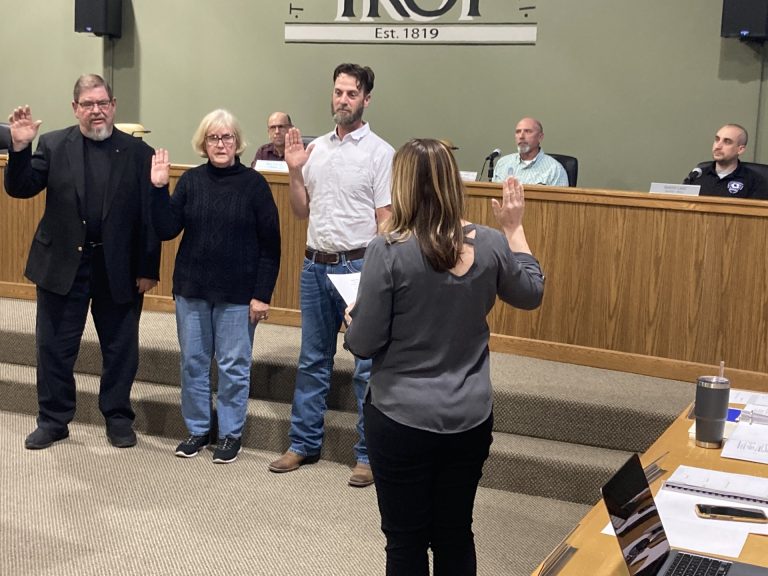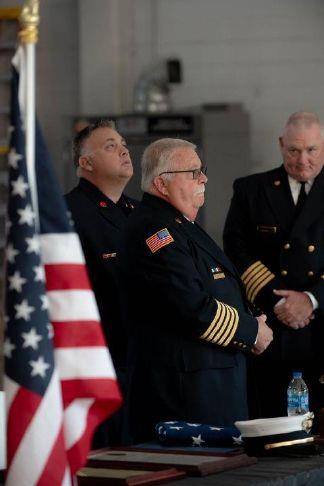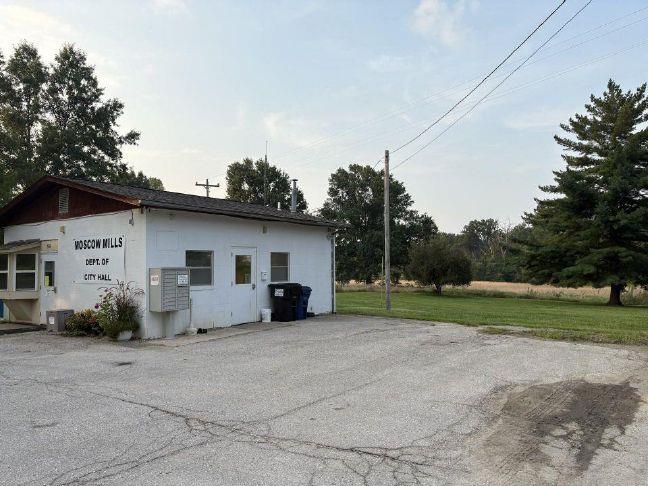Split Troy Board Approves $1.5M Outer Road, Repeals Code of Conduct

TROY – Troy’s Board of Aldermen may have a lot of new faces, but that doesn’t mean they are going to agree with each other.
With four new aldermen elected or appointed in the last two months, the new six-member board split at their first meeting together Monday night on constructing a new outer road, increasing retirement benefits for city employees and repealing a controversial code of ethics.
Aldermen deadlocked 3-3 on a vote approving a $1.5 million expenditure from the general fund to pay for construction of an outer road, located on the west side of Highway 61.
The mayor cast the tie-breaking vote in favor of the project.
In its original format, the outer road project included the cities of Troy and Moscow Mills entering into a cost share with the county and Missouri Department of Transportation to connect the south end of Troy with Highway C in Moscow Mills.
However, after multiple years of unsuccessful negotiations with landowners and developers regarding right-of-way, the county withdrew its support, submarining the proposal.
A few months ago, Sconce brought to the board the possibility of the city going forward with its commitment and building the outer road regardless of whether it connected with Highway C.
Sconce advocated for the commercial development opportunities provided by the additional access.
“I would point out that there’s no better time than now,” he said. “We’ve never been at this population level. We’ve never been so attractive to so many commercial developments. We’ve never had so many people wanting to come here before. We have the right-of-way plan. We have people out there that want to come.”
Rachel Dunard, Dennis Detert and Terri Huffman voted against the project, citing its lack of connectivity and the need for repairs on existing streets.
“You look at some of the other streets in town, they’re in dire need of repair,” Detert said. “Before we start building a road that goes nowhere … that money can be spent on numerous other things. We need to improve the streets in this city before we start adding new streets that we will repair before the businesses come into the county.”
Alderman Quentin Laws stated he secured a commitment from the commissioners that if the city built the road to the south city limits, they would fund its further construction to Highway C.
“This is something I have discussed with them,” Laws said. “What I’ve been told by the commissioners is … they would take it all the way down to … Moscow. They would take it and then do the same agreements with the city for maintenance and things like that.”
Laws’ statement was met with immediate skepticism.
“I guess my question then is if they couldn’t afford the middle third, how can they afford two thirds,” Detert asked, referencing the previous agreement the county backed out of which included Moscow Mills paying a portion. “I’m just curious.”
Dunard was more direct in her doubt.
“The county commissioners have said that they were giving money, then they pulled out. They are the reason the deal is dead,” she said. “We’re three years in, but we don’t have dirt.”
She too questioned spending this much money for something new when the old streets need work.
“Why are we going to spend $1.5 million on a dead end road that we might get the county to help us on,” she asked. “And when we literally have potholes everywhere that our citizens drive on every day. It’s a dead end road. It goes nowhere. I just think if we have $1.5 million sitting there to spend, we can spend on something else that’s going to actually give us a return on our investment.”
Missouri Department of Engineer Jeff Niemeyer attended a public hearing proceeding the vote, and said while the state approves of the plan, they couldn’t provide any funding.
“The main reason the state did not put any funds for this is it’s a dead-end road,” he said. “If it connected to route C like initially planned it would provide some relief to 61. But a dead-end road like this doesn’t really serve the state very much.”
Sconce though, in ultimately deciding the project’s fate with his tie-breaking vote, said the dead-end aspect of the road is irrelevant in terms of benefit to Troy.
“The value in having that road for the city of Troy is the same if it stops at the city limits or if it connects to Highway C,” he said. “It would expand our commercial offerings in that unused area.”
Code of Ethics
By a 5-1 vote, aldermen repealed a controversial code of ethics policy passed last year when Sconce cast another tie-breaking vote.
The policy was proposed and promoted by alderman Gary Leifert, whose term expired in April, and survived one vote already to repeal it, as aldermen deferred a decision until after the election of the new board.
Following the April election in which Huffmon was elected to Leifert’s seat, he stated on a Facebook post “the code was written for just one alderman who abused the position of being an alderman.”
While Leifert never specified which alderman, Dunard filled in the blanks Monday night.
“The person who sponsored this publicly said that it was a personal ordinance against myself and that it was only for myself,” she said. “That was something that we all knew at the beginning and … there’s a lot of taxpayer’s money that was spent on this personal attack against me and that’s actually quite disgraceful and disgusting to our community.”
Laws agreed entirely.
“That’s absolutely wrong. We shouldn’t be creating ordinances against one person,” he said. “I won’t support a bill that goes specifically to one person.”
Harold Horner, who along with Dunard and David Norman first voted against the policy, voted in favor of keeping it Monday night, stating he didn’t see anything wrong with it, leaving Dunard exasperated.
“You were in agreement when this first came out that we didn’t need it and you voted no against it,” she said. “So I am beyond confused why you want it now especially knowing that it was created as a personal attack against me.”
Retirement Benefits
By a 4-2 vote, the board voted to expand the city’s retirement offerings without requiring any employee contribution.
The board requested quotes for 0, 2 and 4 percent contributions to the retirement system. By choosing the 0 percent employee contribution option, the city’s payment increases from $235K a year to $770K.
Horner and Mitchell Bryant voted against.
Also at the meeting:
- – The board commissioned a study of several roads in poor condition in town, including the Hamptons, Third and Dana Street. City employees will be determining what can be legally done to improve the streets and what the costs would be.
- – Elected Dunard board president by a 5-0 vote.



